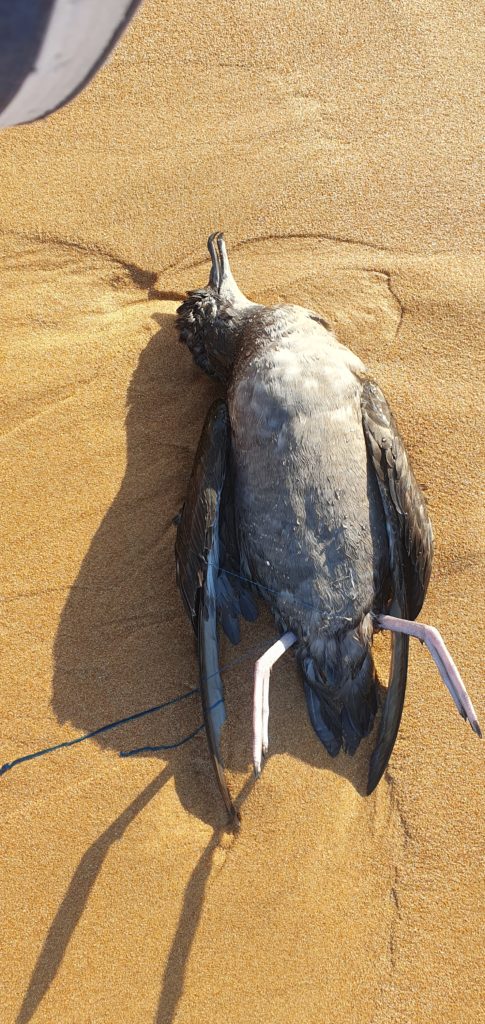The intense stormy and wet weather over the weekend of November 4-5 was the most likely reason for hundreds of birds washing up on beaches across the Central Coast.
Wildlife ARC (Animal Rescue and Care) Central Coast received many calls about the large number of birds; some sick or deceased.
It is a normal annual occurrence for Short-Tailed Shearwaters (Mutton birds) to be passing us now, migrating south to breed.
The birds are returning from the Bering Sea near Alaska to breed in Victoria and Tasmania – a 10,000km migration taking three to four weeks, and it is an unfortunate but natural occurrence that some birds perish during the epic journey.

“It does happen every year, it’s just that we don’t notice it until there’s something significant that gets them all in a group like the storms did,” Wildlife ARC volunteer Sam Chatfield said.
This time bad weather has sent many to shore, with reports of the mutton birds being found on beaches from Coffs Harbour in the north to Shoalhaven Heads in the south.
One resident told CCN he had counted 135 dead birds at Avoca Beach on Monday.
Wildlife ARC volunteers are on the ground across the Central Coast helping the birds.
Their advice is that if you come across these birds you can help by moving tired birds to a protected area to rest and dry off and healthy birds will continue migration.
Dying birds can be taken to a vet for euthanasia and dead birds can be left to be washed out to sea as the eco-system take its natural course.
Staff from Central Coast Council staff are also collecting deceased birds and rubbish washed-up on local beaches after the weekend storms.
The birds could also turn up in roads and driveways as lights at night can be mistaken for the moon reflecting on water bodies.
If any of the birds you come across has a band, take note of the band number or get a clear picture, write down the date and location, and report it to the Australian Bird and Bat Banding Scheme at https://www.dcceew.gov.au/…/bird-bat…/reporting-form
Wildlife ARC Central Coast can be contacted for assistance or advice on 4325 0666.
Sue Murray


